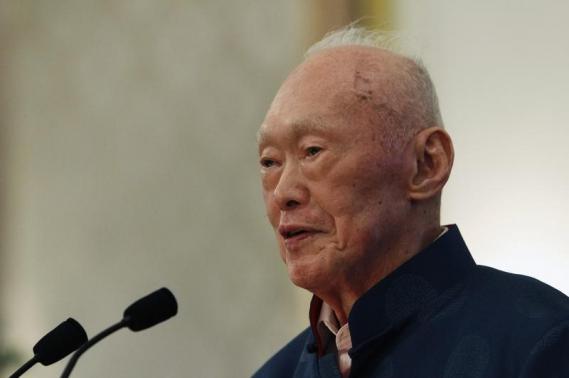
Lee Kuan Yew, Singapore‘s first prime minister and architect of the tiny Southeast Asian city-state’s rapid rise from British tropical outpost to global trade and financial centre, died on Monday (March 23), aged 91, the government announced.
A statement from the Prime Minister’s office was read out on Channel News Asia.
Although Lee had receded from the public and political scene over the past few years, he was still seen as an influential figure in the government of Prime Minister Lee Hsien Loong, his oldest son.
“Mr Lee passed away peacefully at the Singapore General Hospital today at 3.18 A.M,” the statement said.
“Harry” Lee became Singapore‘s first prime minister in 1959 and held onto power for over three decades, overseeing the island’s transformation from a malaria-infested backwater into one of Asia’s most prosperous nations.
Even after stepping down as leader, the fiery Lee was never far from the decision making process, holding a cabinet level post until 2011. He was a member of parliament until his death.
Lee combined market-friendly policies with strict controls over the press, free speech and his political opponents. He was hailed by some as a visionary and criticised by others as authoritarian.
Lee’s death and his son’s expected retirement within the next few years will mark the end of an era, but industry leaders say any change of the guard will have little impact on business in the city-state, renowned for its robust institutions.
Lee co-founded the People’s Action Party (PAP), which has ruled Singapore since 1959 and led the newly born country when it was separated from Malaysia in 1965.
He stepped down as prime minister in 1990, handing power to Goh Chok Tong, but remained influential as senior minister in Goh’s cabinet and subsequently as “minister mentor” when his eldest son Lee Hsien Loong became prime minister in 2004.
The older Lee left the cabinet in 2011 and had cut down his public appearances in recent months due to his age and declining health.
Reuters/CHANNEL NEWS ASIA







